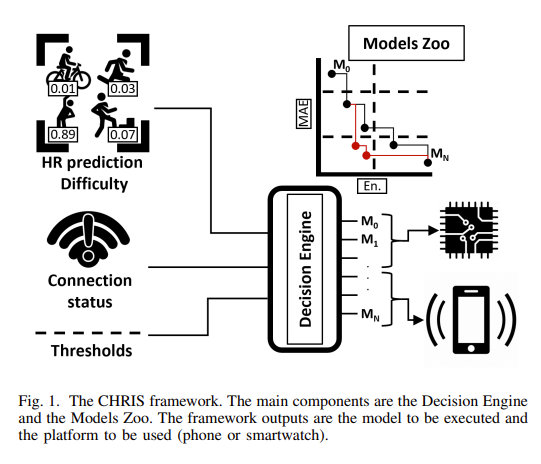There’s often a dilemma when creating Bluetooth systems whether to place the processing on the smartphone or on the Bluetooth device.
The efficient and accurate prediction of an individual’s heart rate using wearable devices is crucial for various personal care applications. A new study Energy-efficient Wearable-to-Mobile Offload of Machine Learning Inference for Photoplethysmogram-based Heart-Rate Estimation (pdf) from the Universita di Bologna, Italy, looks into the trade-offs between carrying out heart rate tracking on the device itself or delegating the work to a mobile device.

The research introduces CHRIS, an inference system that uses the interconnectedness between a smartwatch and a smartphone. This system assesses the balance between energy consumption and heart rate tracking error. Depending on the connection status, a user-specified error, energy constraints and an estimate of the input difficulty, CHRIS employs two heart rate prediction algorithms. These are executed on either the smartwatch or the phone.
CHRIS showed the potential to achieve up to 2.03 times energy reduction on the smartwatch by deferring processing off the smartwatch, without a reduction on the tracking accuracy.